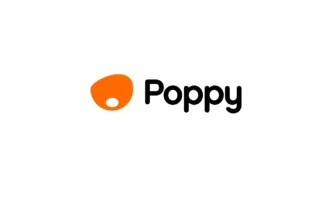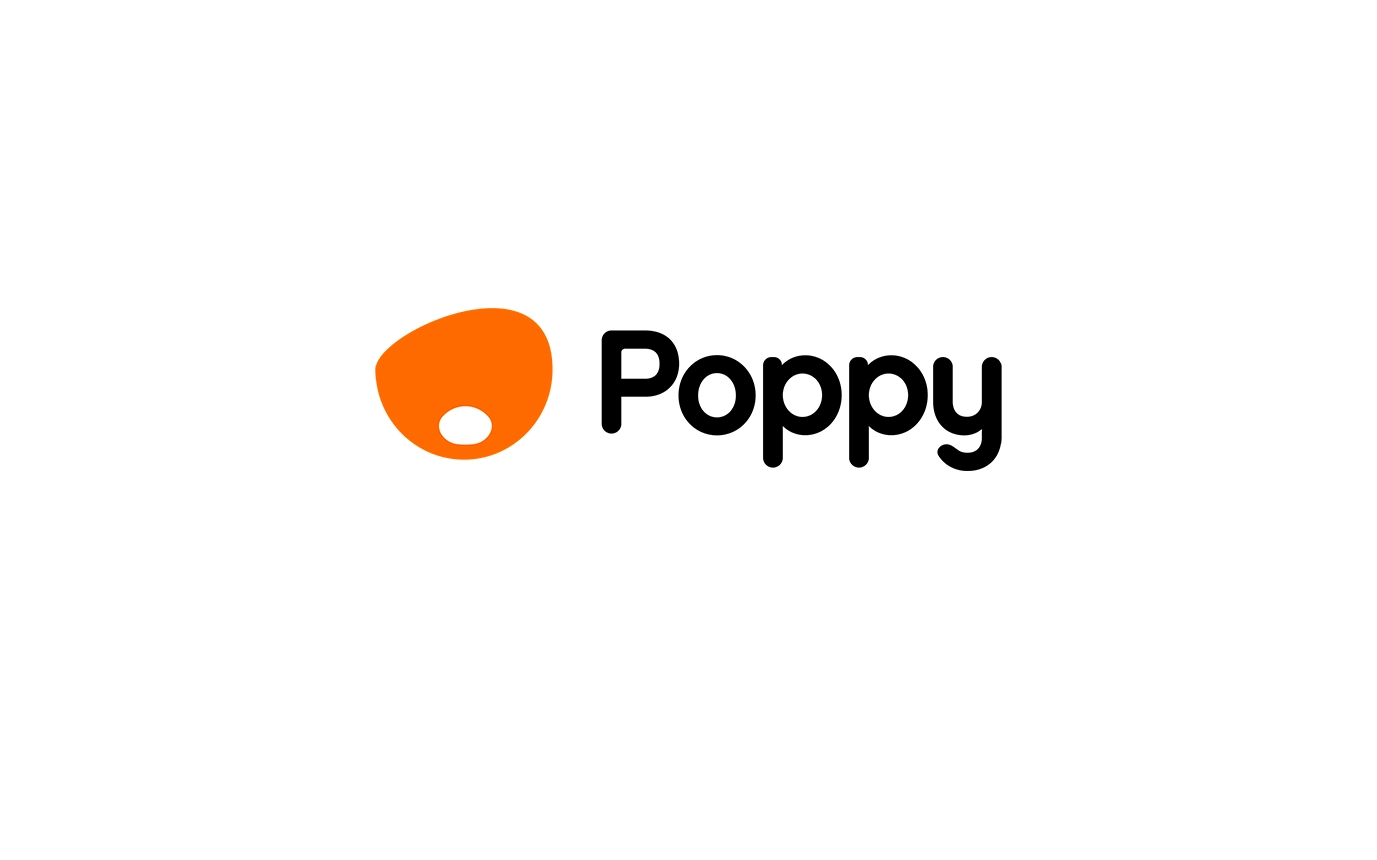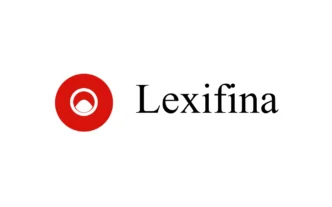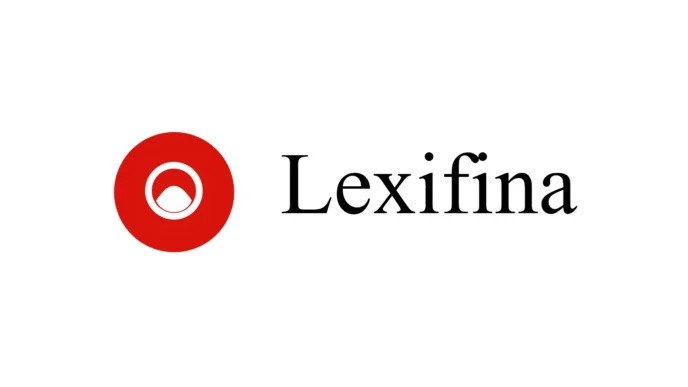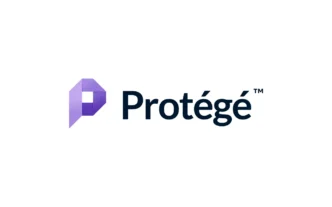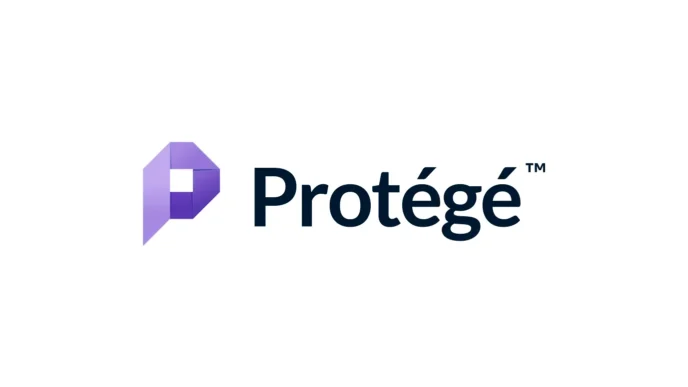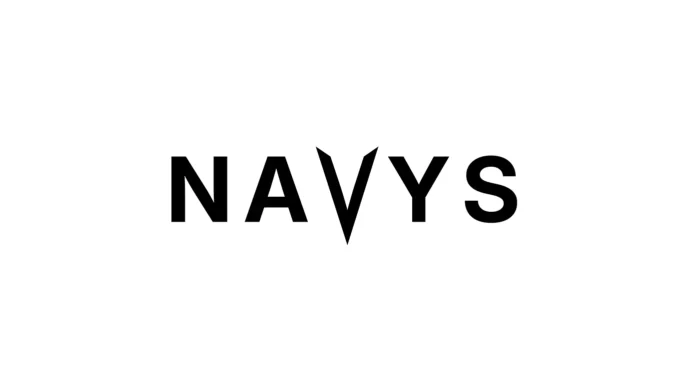If there’s one topic that unites in-house teams of every size, it’s legal spend. Tracking it, understanding it, and managing it: none of it is simple. For legal departments working under increasing budget pressure and growing expectations from the business, the billable hour is no longer just a costs concern, its now also a data concern.
This pain point is exactly where Poppy Legal is carving out its niche as a legal tech platform focused exclusively on helping teams manage outside counsel spend with clarity, control, and AI-powered insight.
This week, The Legal Wire takes a closer look at Poppy Legal, a platform designed to do exactly what its founders once wished existed.
From In-House Pains to Practical Tools
Poppy was born from lived experience. Co-founder Jesse Soslow is a former GC who, like many, once found himself manually reviewing invoices, trying to resolve discrepancies and keep tabs on negotiated discounts. What started as a simple desire: being a good steward of a growing legal budget, has turned into a product vision: provide the tools GCs and legal ops teams need in order to track spend, identify patterns, and stay informed across matters and firms.
What’s more – Poppy isn’t just an audit tool. It’s also a planning tool, an analytics layer, and, increasingly, a source of strategic insight for in-house legal departments. Whether you’re managing $500K or $20M in annual outside counsel spend, the same fundamental challenges persist: visibility, accuracy, and accountability.
So, how did a tool built for invoice review evolve into something so strategic, you may wonder. And we wondered the same. We asked Jesse if he could walk us through how Poppy evolved from simple invoice auditing to the more holistic insights offered today, and he had this to say:
Jesse: “When we started speaking with GC’s about the concept for Poppy Legal, we quickly realized that most aren’t terribly concerned with individual invoice review. They want to be attentive on that front, but they typically don’t want to be nitpicking invoices. Our product absolutely helps with invoice review and flags things that are hard to see without a tool (e.g., has a lawyer’s rate changed?), but it’s normally not the main reason people use it. Two other issues stood out as important to them. First, using data to have a good holistic picture of their spend, so that they can have confidence in front of their CEO and Board that they’re spending company resources as reasonably and effectively as possible. And, second, solving some serious workflow challenges around managing, tracking, budgeting, and organizing spend data, so that people on their team don’t need to waste time with a bunch of manual data entry (if that’s something that is currently being done at all).”
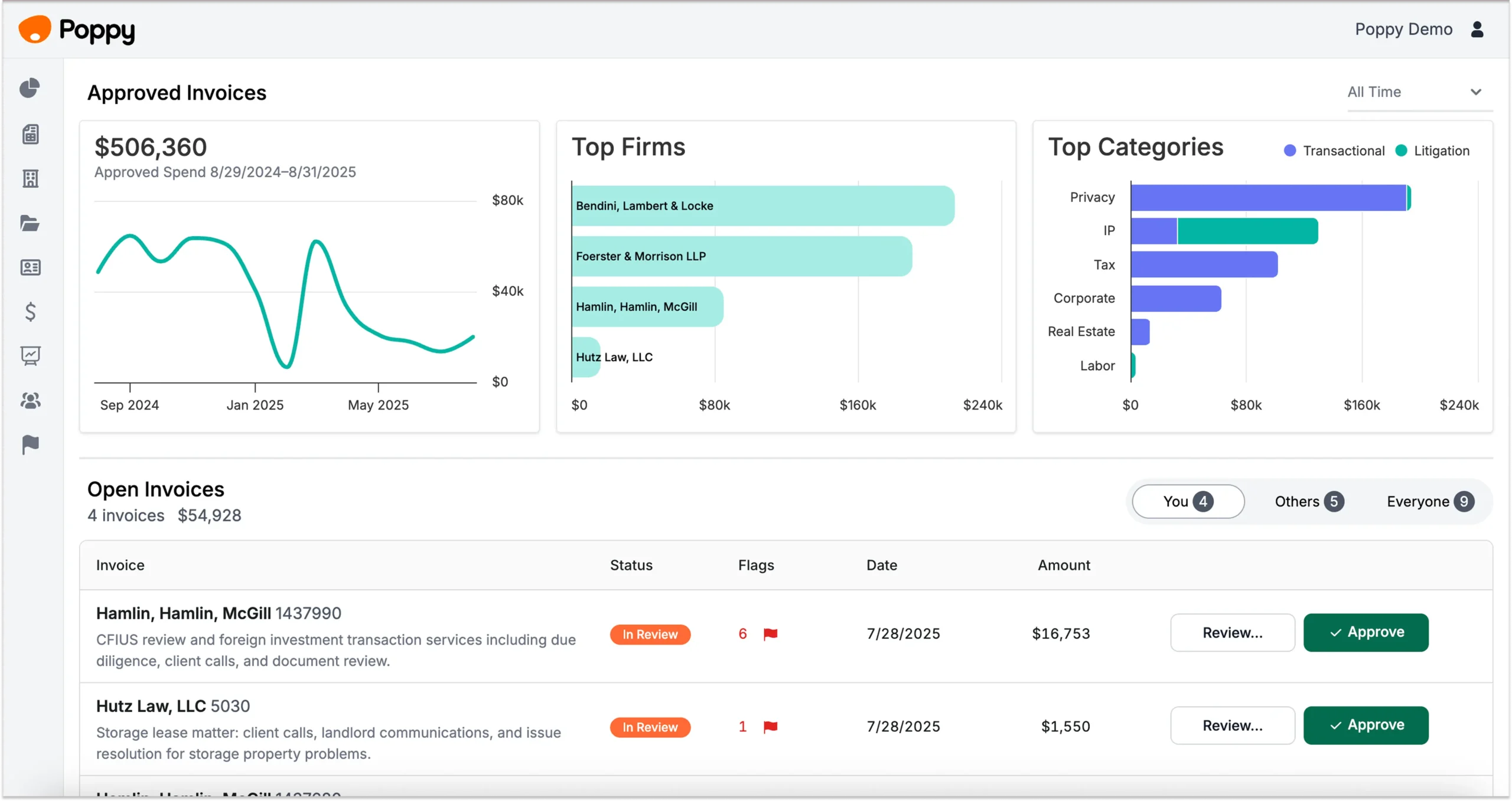
Designed to Scale (Up or Down)
What makes Poppy especially noteworthy in the current legal tech landscape is its focus on accessibility. Many platforms target only large enterprises or require complex setup and integrations. Poppy, by contrast, is deliberately lean. Upload your invoices, or have your firms email them in, and the platform’s AI begins parsing the data instantly. No matter codes. No timekeeper mapping. Just instant organization.
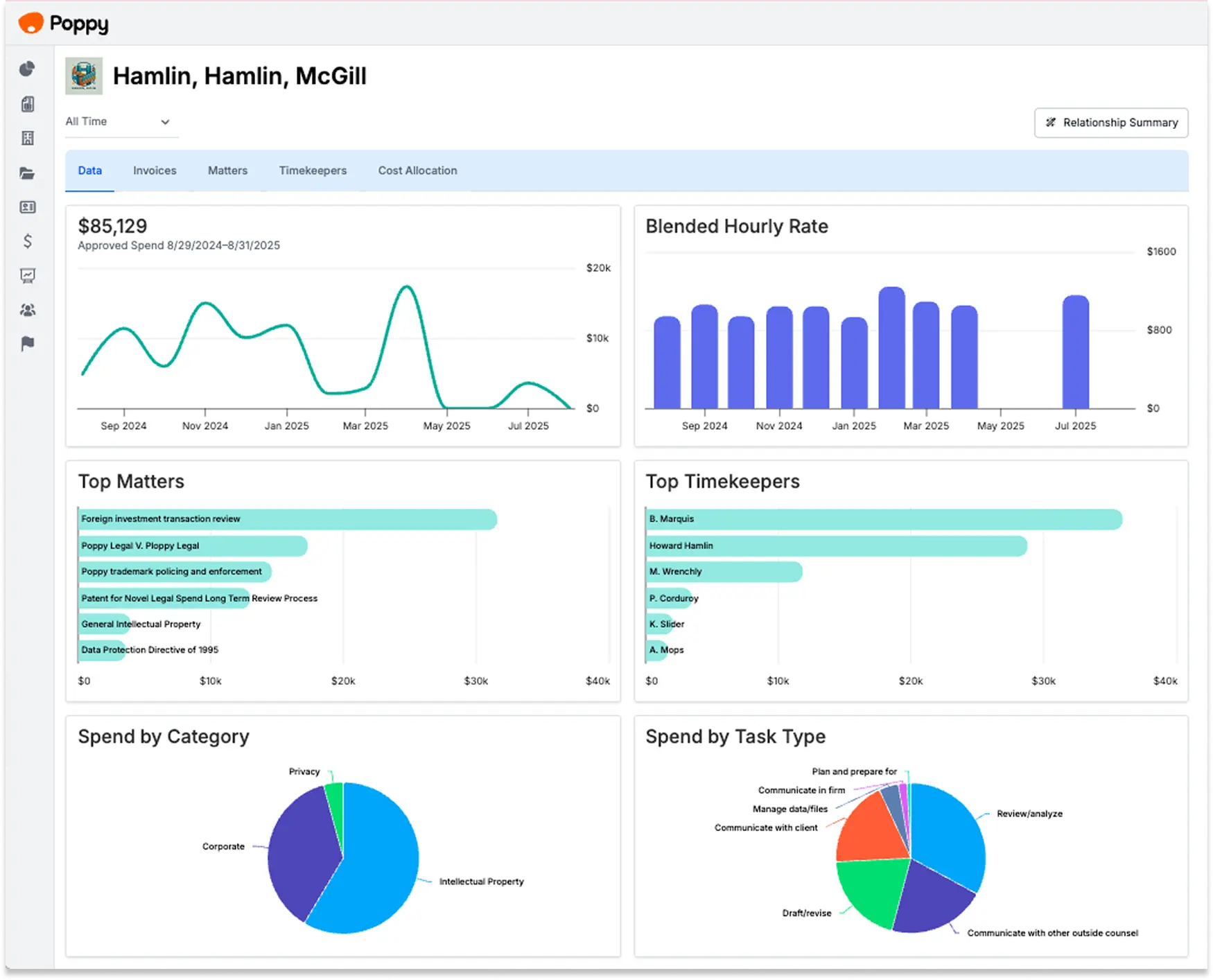
That design choice reflects a clear strategic focus. As Jesse has said before, the platform is intended to work just as well for a solo GC as it does for a team of 30. In other words, legal departments shouldn’t need dedicated tech resources to understand their own spend. Jesse has emphasized simplicity as a key part of the product. We sought to find out what trade-offs had to be made to keep the user experience streamlined while still delivering detailed insights. As Jesse explained, “Our guiding principle is to make things as simple and easy as possible by allowing our system to figure out as much as it can without intervention, but we do recognize that sometimes more complex workflows require more up front work from our users. In those cases, we’ve sought to make those features opt-in, letting the user decide how much effort to put in in order to take advantage of more specific functionality to meet their use case. We think that strikes a good balance for our users by making the majority of tasks turnkey, but letting folks dig into powerful underlying tools when more complex needs arise.”
A Niche Use Case, Broad Relevance
Legal spend management isn’t often front and center in the AI conversation. Most legal tech headlines focus on drafting, chatbots, and research tools. But understanding how money is spent on legal work, by task, by matter, by firm, is arguably just as critical, especially as budgets tighten and teams are asked to do more with less.
What’s notable about Poppy is how targeted the product is. This isn’t general-purpose legal AI, but key infrastructure. The system flags rate increases, highlights billing anomalies, and even tracks firm-specific trends to support annual rate negotiations. It’s the kind of tool that may not replace legal advice, but certainly helps teams better evaluate the value of that advice over time.
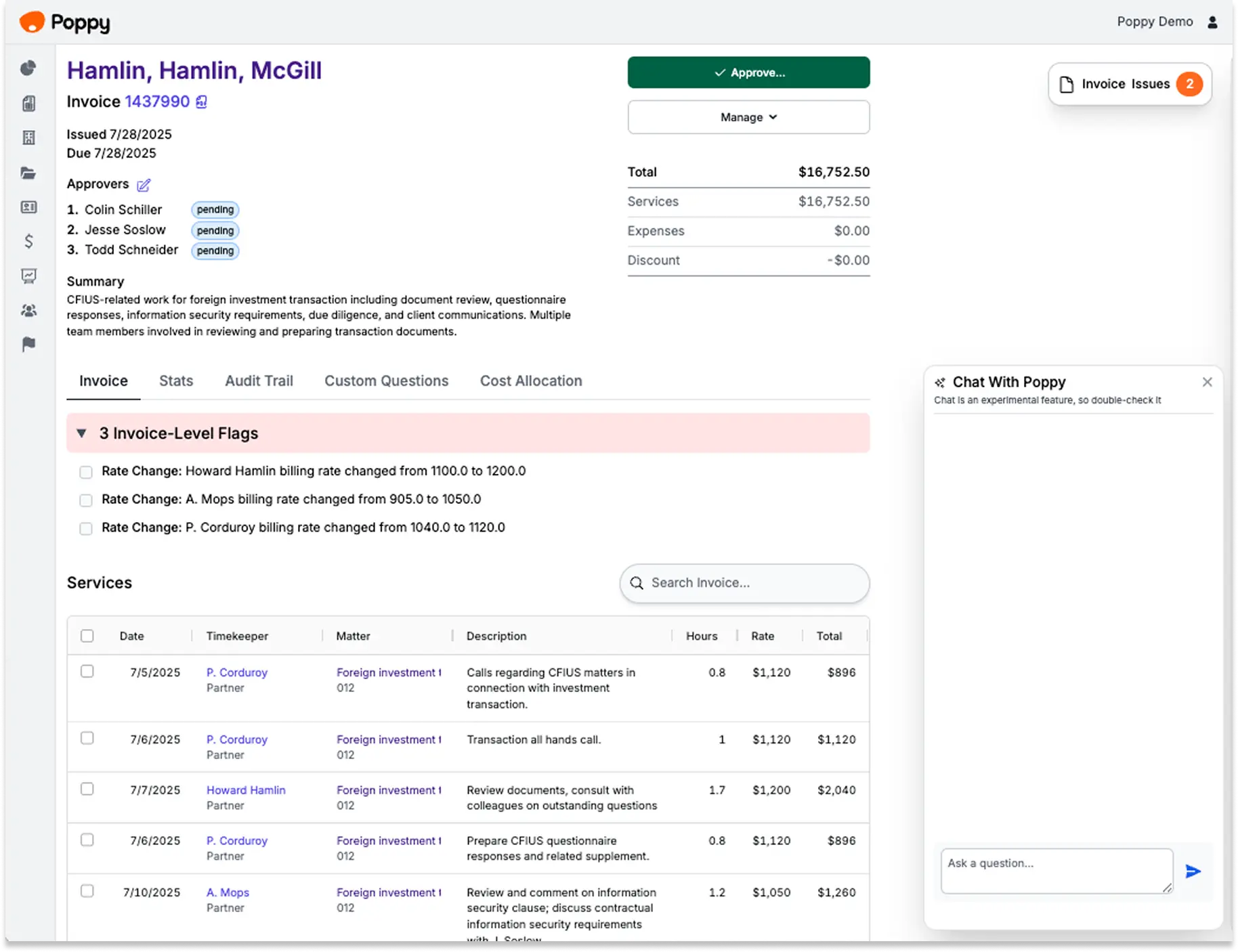
To better understand the way in which Poppy has already helped clients, we asked Jesse what kind of feedback he’s heard from legal departments using Poppy during rate negotiations or budgeting cycles:
Jesse: “Our customers talk a lot about having informed, evidence based, data-driven conversations with outside counsel when its time to talk rate increases and discounts. Previously, they’ve said they’ve either had team members spend hours combing through old invoices to uncover key information around areas they want to discuss, or they’ve relied on general perceptions because uncovering the data would be too hard. Poppy not only puts the data at a legal department’s fingertips, but it also uses AI to proactively provide ideas to legal teams on how to spend more effectively, suggesting when alternative fee arrangements may make sense, or when to ask firms to consider staffing a bit differently.”
Clear Data, Informed Decisions
At its core, Poppy acts as an AI-powered microscope. You can examine spend by matter, firm, or timekeeper; see changes in billing patterns over time; and get alerts when something looks off. But instead of requiring constant manual oversight, the platform is designed to keep you informed in the background. Think of it less as a dashboard, and more as a monitoring system that checks invoices so you don’t have to.
The data remains verifiable, with no AI guesswork. Every alert is tied to a specific line item. Every chart is grounded in actual billing details. For in-house teams, that means fewer missed discounts, more confident conversations with law firms, and better overall spend hygiene.
Given Poppy’s core features, we prompted Jesse to explain what role he thinks AI should play in legal decision-making versus simply supporting human judgment, and how does Poppy strikes that balance:
Jesse: “Currently, Poppy is designed to simply aid human judgement, and not take any action without human confirmation. Over time, as AI improves and comfort with AI increases, we anticipate allowing users to opt-in to automated behaviors within Poppy. We can know a reviewer’s preferences and they can choose to have Poppy automatically request more information or push back, when appropriate. That said, we can allow for these sorts of automated behaviors, because the risk profile of bill and spend review is fairly low, as compared to document drafting and the like. This is also why we think spend management is an excellent place for a legal team to begin getting comfortable with AI, its value and its limitations – the risk is much lower than in many other contexts.”
A Tool Built With Law Firms in Mind
Importantly, Poppy doesn’t aim to be adversarial to outside counsel. In fact, its features like issue management, approval flows, and firm reporting, are designed to facilitate better conversations, not just stricter oversight. Law firms, like legal departments, benefit when billing practices are transparent, expectations are aligned, and feedback loops are easy to manage.
We asked Jesse how he views Poppy’s role in strengthening law firm-client relationships, rather than just monitoring them:
Jesse: “As I mentioned, the main use case for Poppy is not to nitpick bills, but rather to give legal teams the tools to deeply understand and manage the (almost always) biggest portion of their budgets. Like all relationships, the legal teams and law firm relationship is strongest when there’s clear communication around issues and problems are solved proactively rather than allowed to fester. Poppy surfaces the information to teams that might indicate issues, and provides the data to have informed and thoughtful conversations.”
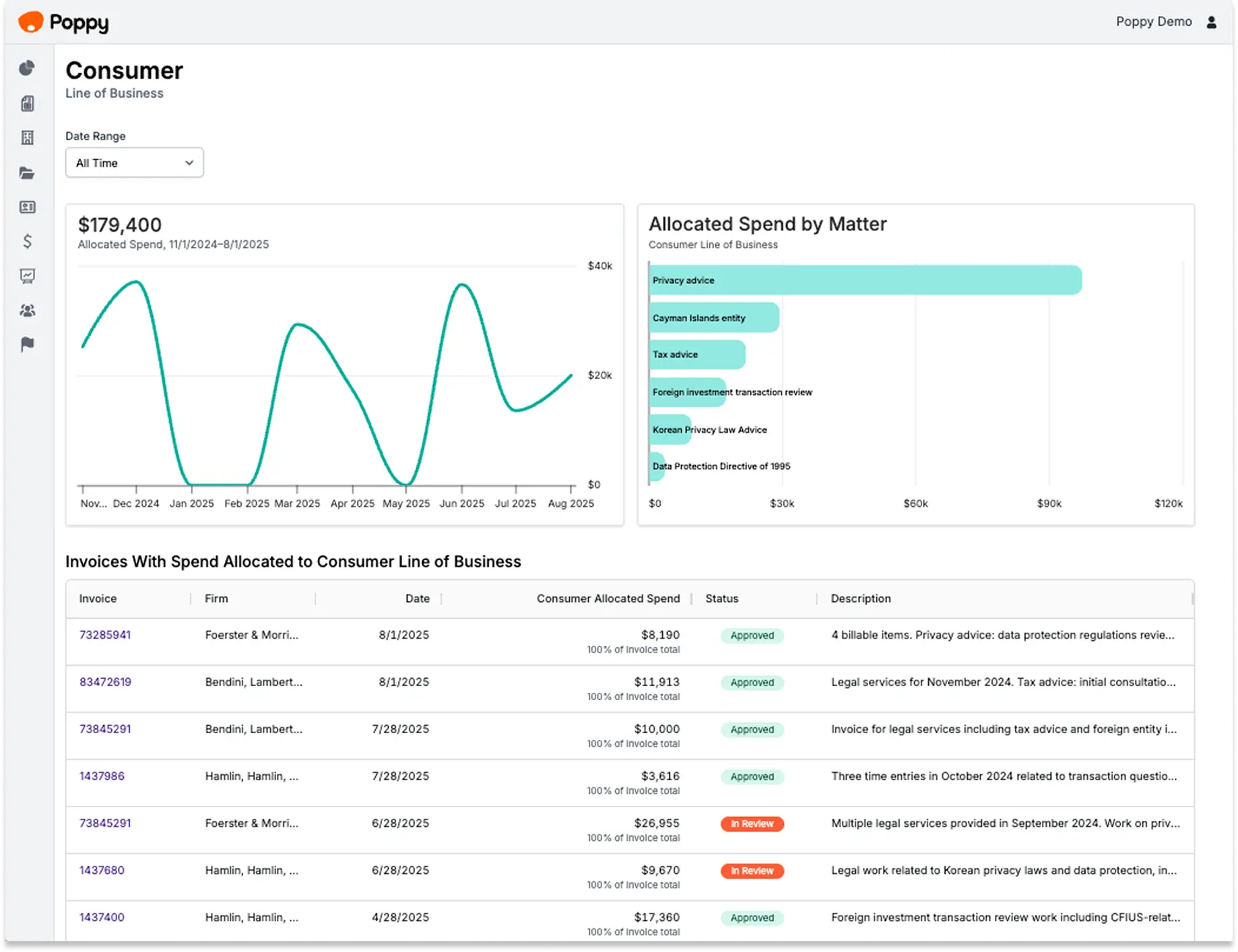
What Comes Next?
As legal tech matures, there’s growing interest in products that solve specific, recurring problems. Poppy fits that mold: it’s not trying to do everything, but it does one thing, legal spend, very well.
With more features in the pipeline, including broader insights across law firm relationships and deeper AI analysis over time, Poppy is positioning itself as both a short-term problem solver and a long-term intelligence layer for in-house teams.
And for legal departments just starting to explore AI tools, Poppy offers a practical entry point. No setup. No complexity. Just smarter, clearer spend data, ready when you need it.



